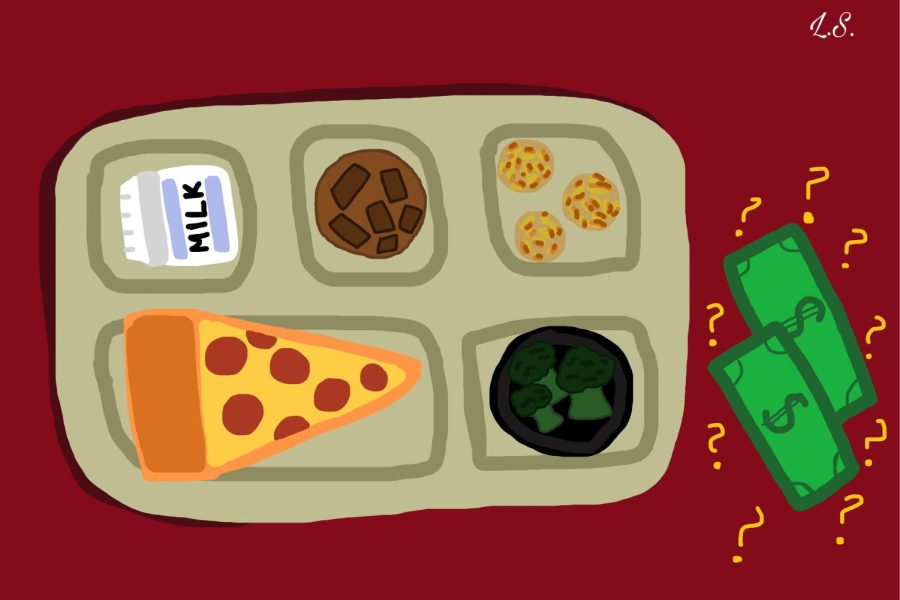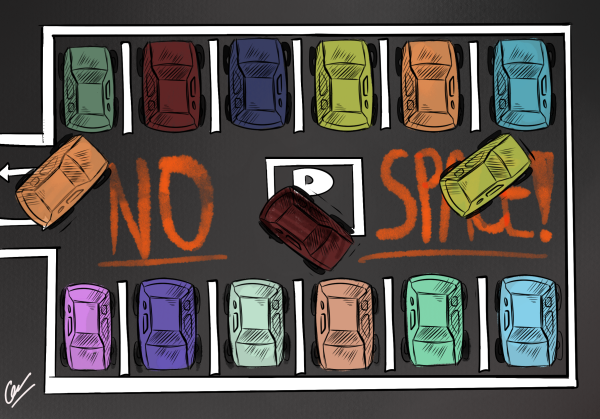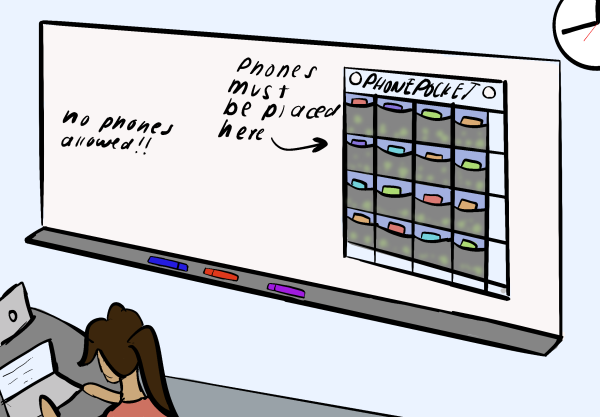[Opinion] All students should be provided with free school meals
Not everyone remembers to bring cash to school for lunch, especially if they’re in a rush to get here on time. Having a lunch also ensures that students get the right nutrition to think and process information properly.
September 28, 2022
The start of the 2022-2023 school year has brought the end of universal free school meals for many students across the nation. In March 2020, the Covid-19 pandemic disrupted life as we knew it, forcing brick and mortar schools to close their doors and moving students from an in person classroom to a virtual one as a way to protect everyone from getting sick.
In response to the tough economic conditions the pandemic placed on many individuals as a result of remote working and mass firings, the U.S. the Department of Agriculture, which administers the federal government’s National School Lunch Program, quickly granted waivers to ensure all students could receive free meals from school.
Throughout the end of the 2020 school year, students had the opportunity to pick up pre-packaged meals for free, ensuring that every student had access to nutritious food, even when they were not on the physical school campus. This method continued throughout the 2020-2021 school year which was almost entirely online for most schools. At one point, over 30 million children across the nation were getting those free meals.
However, a full two years later, Republicans blocked another extension of this program over the summer, claiming that the worst of the pandemic was over and so was the urgent need for children to receive free lunches.
These waivers officially expired on June 30, 2022 meaning that many students no longer have access to free school meals. Schools will have to resume the old three-tiered system where some families do not pay at all, some receive discounted lunches and others must pay full price.
Two states, CA and ME, will continue providing universal school meals after the federal waiver ends due to measures their state legislators passed and governors signed into law during the COVID-19 pandemic. However, this still means that most states will not have free school breakfasts and lunches this year.
Every state should offer free meals to all of their students. Although 40 cents for lunch might not sound like a lot, if you have three kids and you are trying to feed them five days a week, the expenses can really add up. For the 2021-22 school year, a family of four would have had to have earned $34,450 or less to be eligible for free meals or $49,025 or less to have been eligible for reduced-price meals.
It seems like it is ideal for each child to have the same opportunity for access to nourishment. No child should have to go through the day hungry when there is food that could and should be provided for them, free of charge. If students have classmates that are hungry, stressed about not having enough money or worried if their parents can not afford their lunches, they can be distracted from the main role of school, getting an education.
One of the biggest advantages of making school meals free is that students actually eat nutritious school meals. Following the regulations that emerged from the 2010 Healthy Hunger-Free Kids Act, the nutritional quality of school meals improved significantly and can often be the healthiest foods that a child would eat all day.
Research shows that making school meals free for everyone improves attendance and boosts diet quality while also decreasing the risk of food insecurity and the stigma associated with getting a free meal.
There are also important logistical benefits to universal school meals. Cafeteria staff can focus on serving the meals if they do not need to track payments. Also, families do not have to fill out any paperwork to establish their eligibility for free or reduced-price meals. When families have to take an affirmative step for their kids to get those meals, there are going to be kids across the country that will fall through the cracks.
Hopefully, the federal government will reconsider this issue or more states will follow in the steps of CA and ME by continuing to make school meals free.
Universal school meals provide significant benefits, most notably, reductions in food insecurity and improvements in student diet quality. These benefits are far greater than the marginal cost of providing free meals to students who would otherwise pay.
























